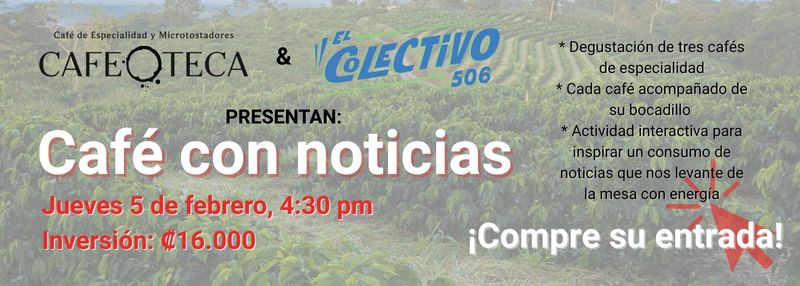Are you a teacher or parent, looking for ways to engage kids and teens in current events without overwhelming them with negativity?
Are you tired of draining conversations about the world’s dire problems, and looking for a way to engage in energizing discussions about the people who are generating interesting solutions to those challenges?
Or have you always wanted to organize a book club, but know you’d struggle to find the time to read a full book on time?
At El Colectivo 506, we believe that our free, bilingual multimedia journalism can spark good conversations in classrooms and discussion clubs.
Here’s a quick guide to what we offer and how to put our content to work with your kids, students, coworkers, or friends—followed by a guide based on one of our podcasts and written stories.
What’s solutions journalism?
It’s journalism that studies the problems that affect our societies, but then takes another step by studying potential solutions to those problems. Solutions journalists look for people and organizations that are responding to social problems, and investigate those responses in depth. We seek to learn how the response works, what evidence exists to show its impact, what insights from the response can be adopted by others, and what its limitations or shortcomings are. At El Colectivo 506, we believe so strongly in this approach that we decided to become the first nationwide solutions journalism organization in Costa Rica—and the first in Central America, too.
Why is solutions journalism such a natural for classrooms / discussion groups?
People all over the world are turning away from negative news. This is fueling a rise in misinformation and distrust of the media, reduced engagement with journalism, and threats to democracies where civic engagement drops. It’s also fueling anxiety among young people who, in multiple studies, have been shown to feel overwhelmed by the crises they face.
Solutions journalism offers all of us, and especially young people, a way to engage with news and information in a more productive way, and to learn media literacy skills along the way. It also offers a more complete version of our problems: it not only explains what the problem is, but also shows the responses to it that are being implemented, leaving people with a broader understanding of their reality. It’s a natural conversation-starter for students of all ages and for adult discussion groups (why not start a “news club” as a less time-intensive alternative to a book club among your friends or neighbors?).
And because all of our content at El Colectivo 506 is bilingual, it’s a terrific way for language learners to practice their skills using content that is also available in their first language.
How can I use El Colectivo 506’s free materials in those settings?
- Browse our editions. From environmental action to cancer prevention, literacy and bilingual education to civic engagement, we’ve covered it at El Colectivo 506.
- Check out our bilingual podcast. Short and long, English and Spanish, read-alouds and conversations… you’ll find formats for all ages and a wide range of topics. Search for El Colectivo 506 wherever you listen, such as Spotify or Apple Podcasts.
- Join our Educación 506 WhatsApp community filled with teachers, administrators, parents, and others passionate about promoting constructive conversations and media literacy among their children, students, and communities.
- Inspire creative nonfiction by using our Media Naranja columns, “super-short love stories about people and ideas in Costa Rica,” as prompts in English or Spanish.
- Get teens to share their opinions by using our Young Voices columns to inspire them to write about their perspectives on Costa Rica’s challenges.
- Nurture your entrepreneurial class by learning about Costa Rican entrepreneurs in our Emprendedores 506 section and WhatsApp group.
- Read solutions journalism about Costa Rican classrooms and teachers. Our editions “Lessons learned,” “Let’s read!” and “Bilingual by 2040” showcase problems and solutions in schools across the country. Consider them for teacher or parent discussions.
Want more guidance? Check out our first discussion guide full of content (written, audio, and photos), discussion questions, and activities for your elementary, high school, or adult groups!





